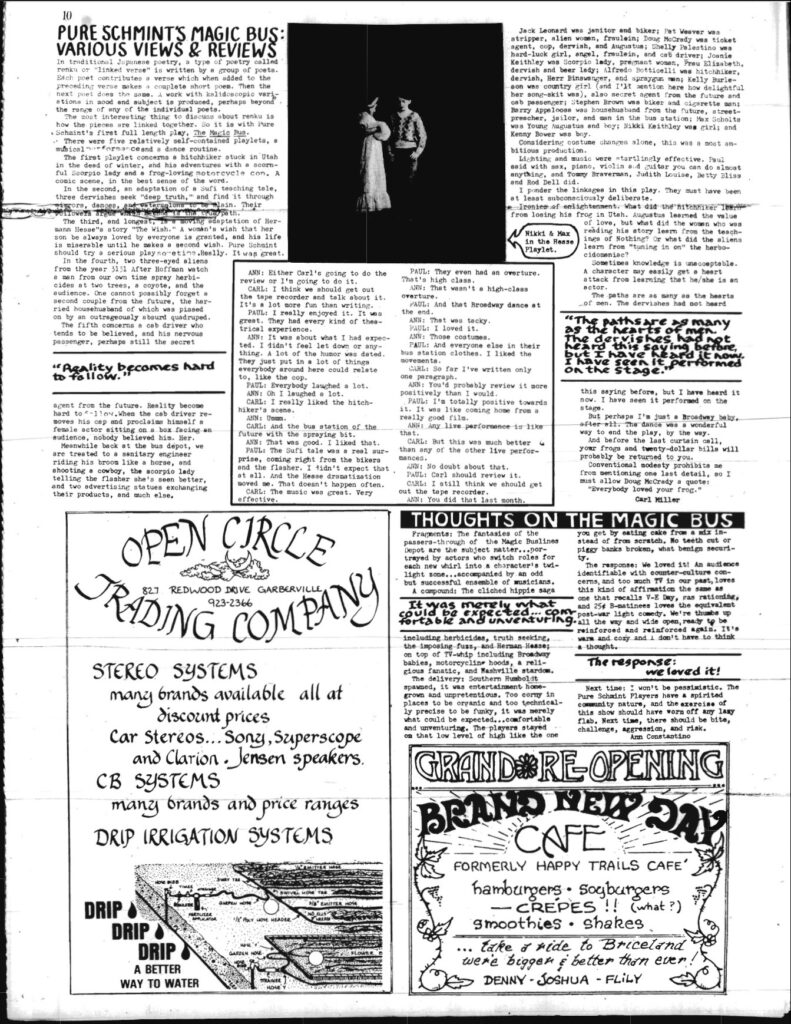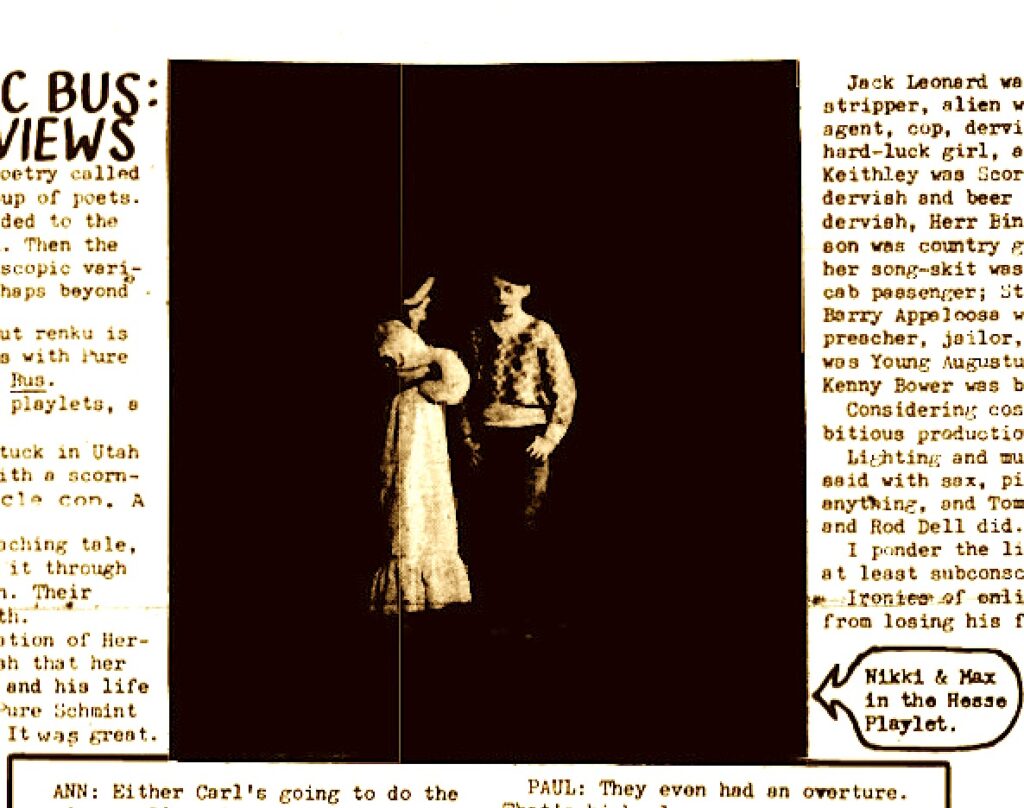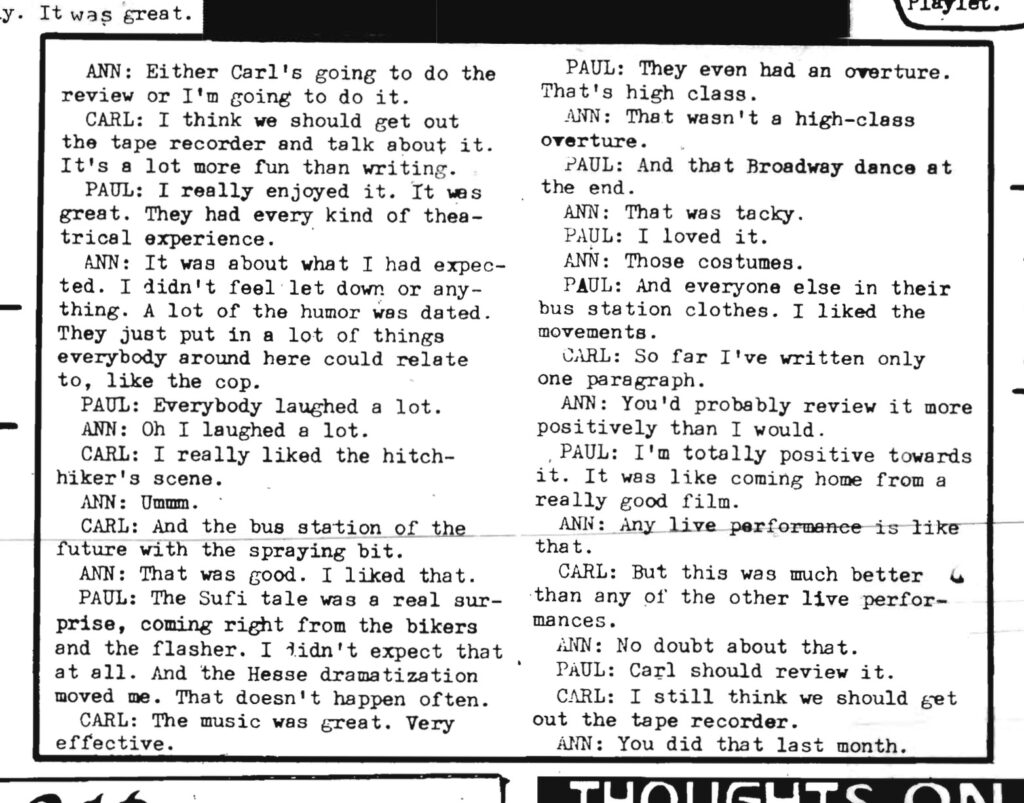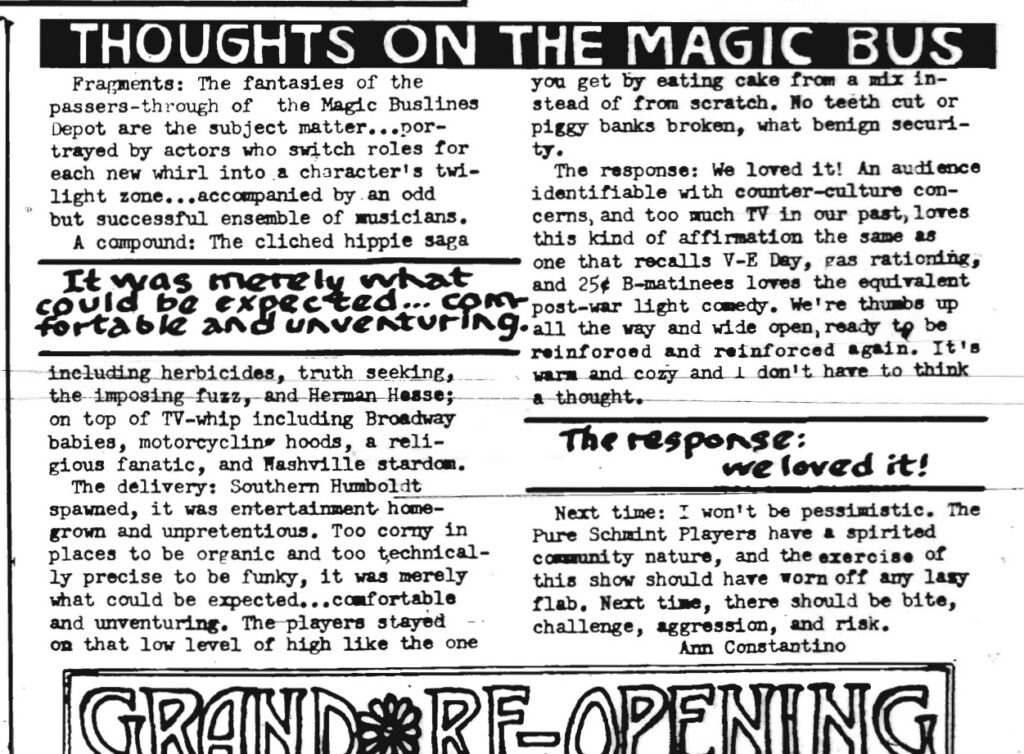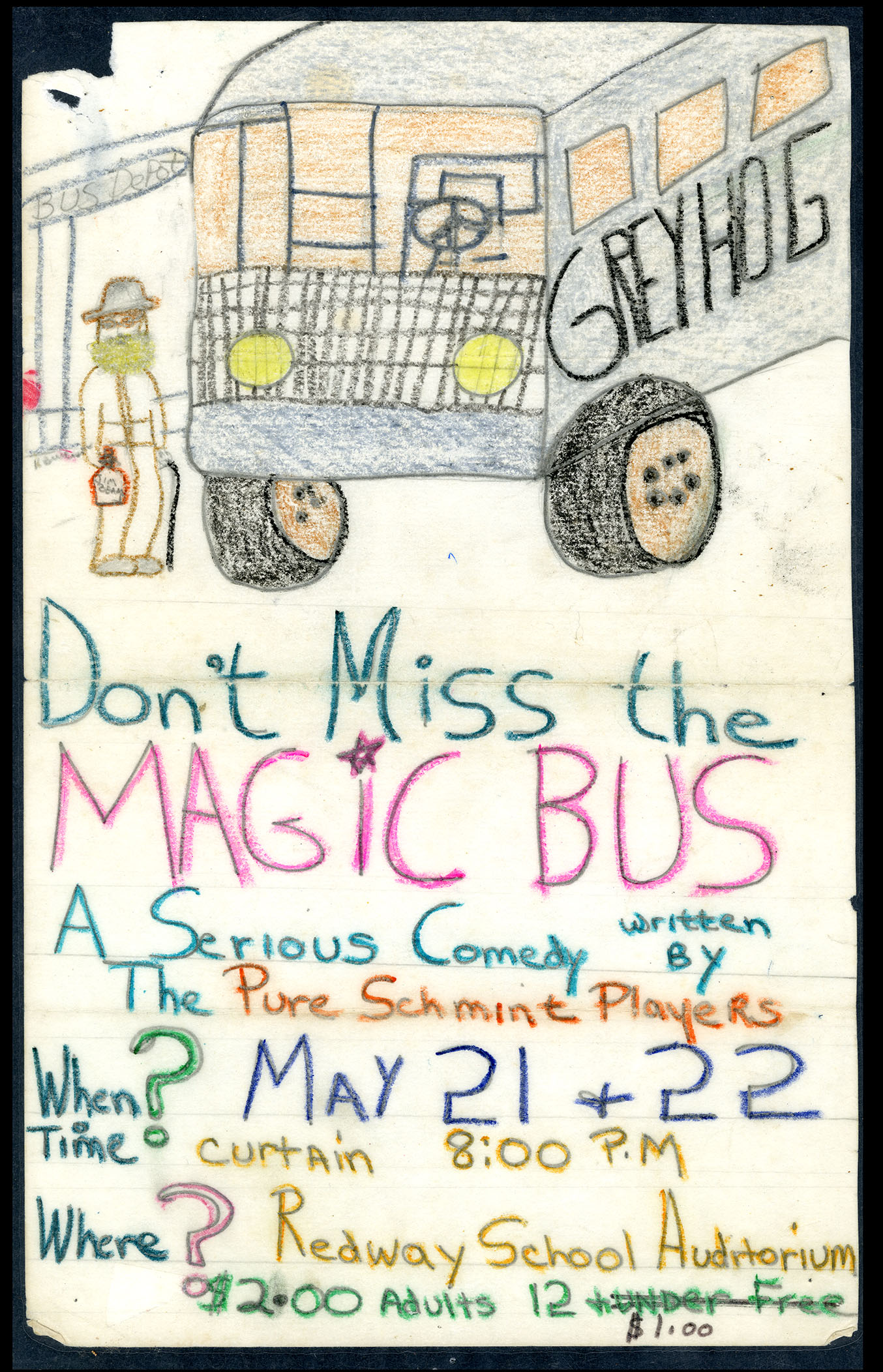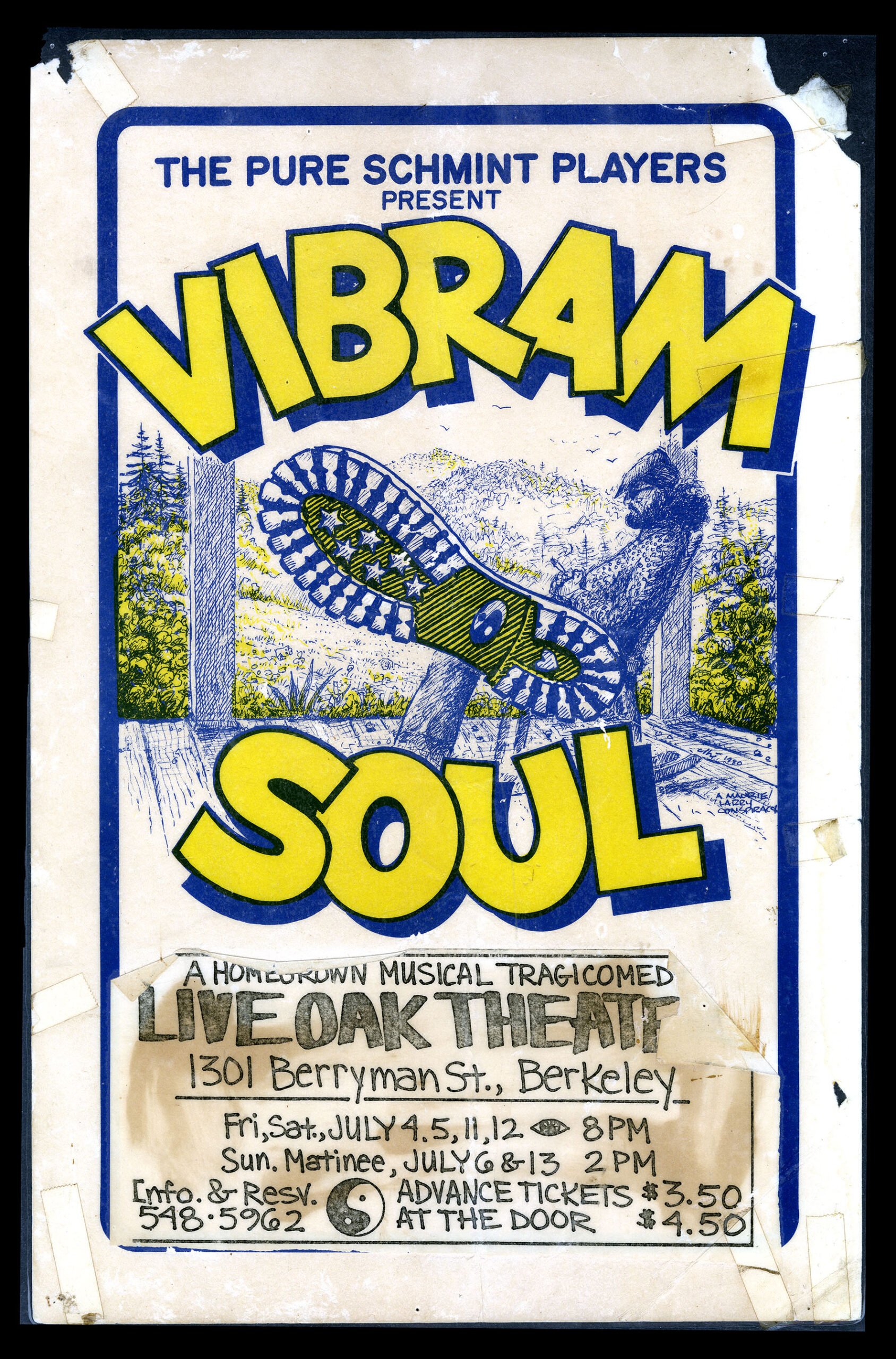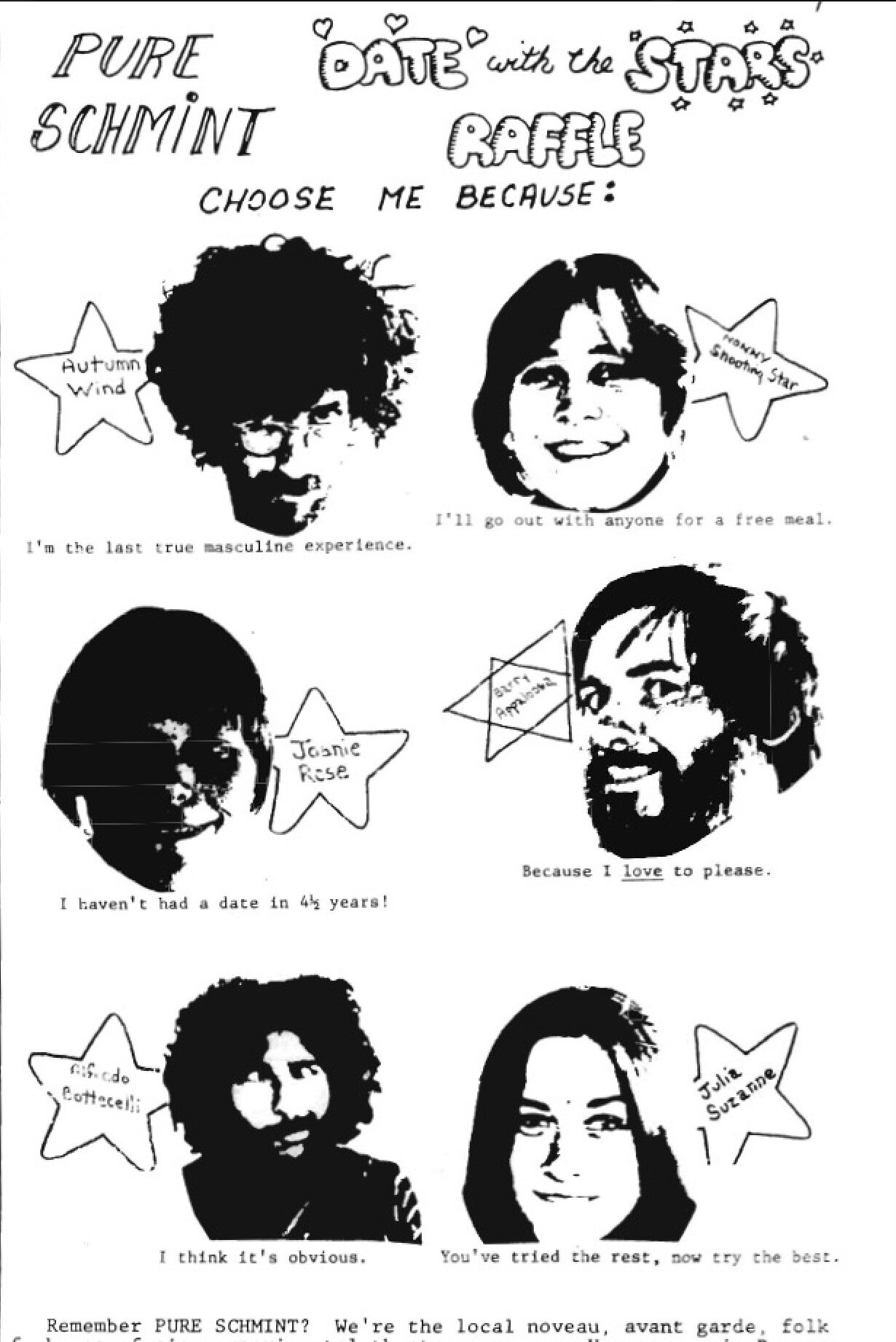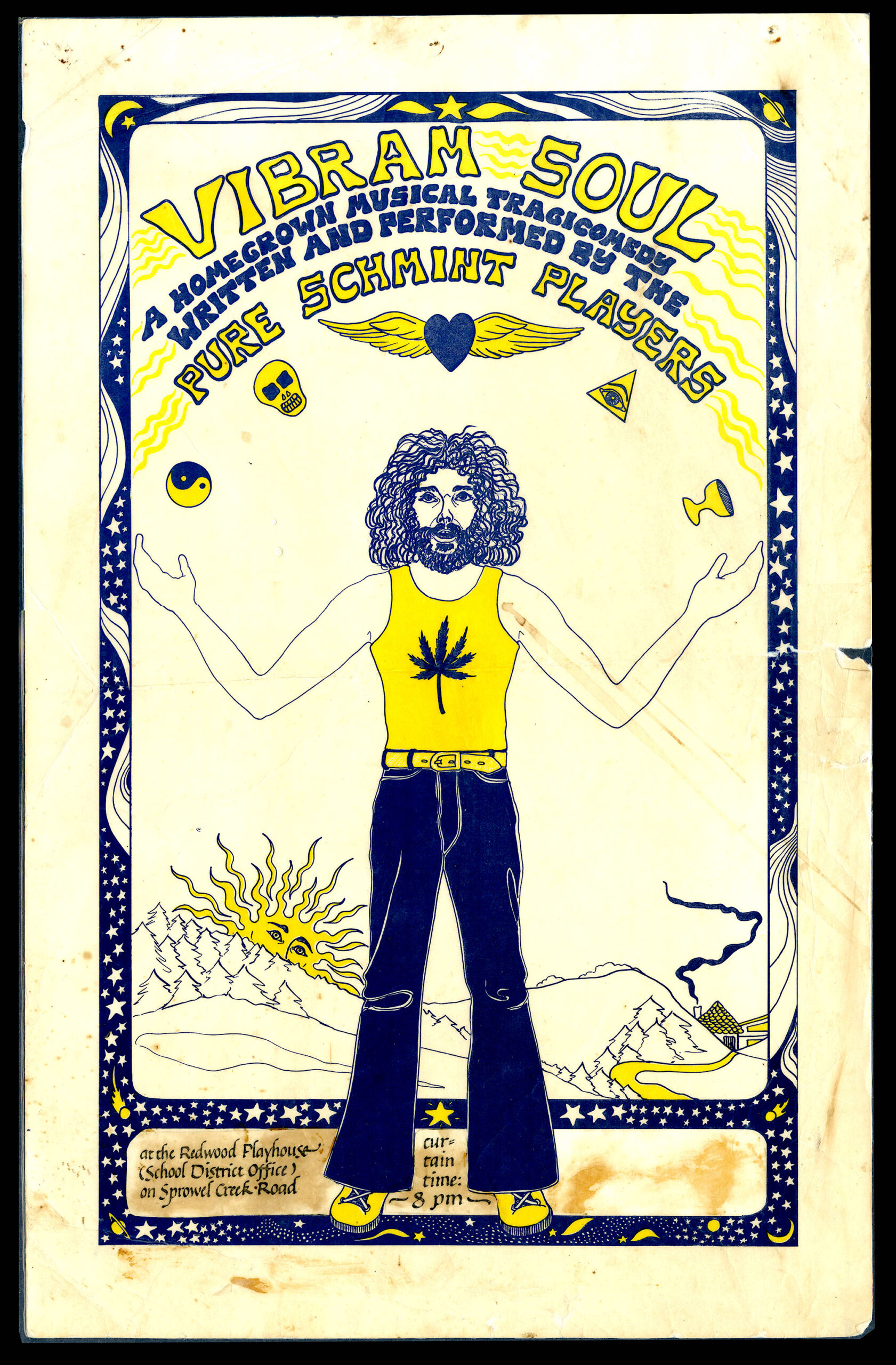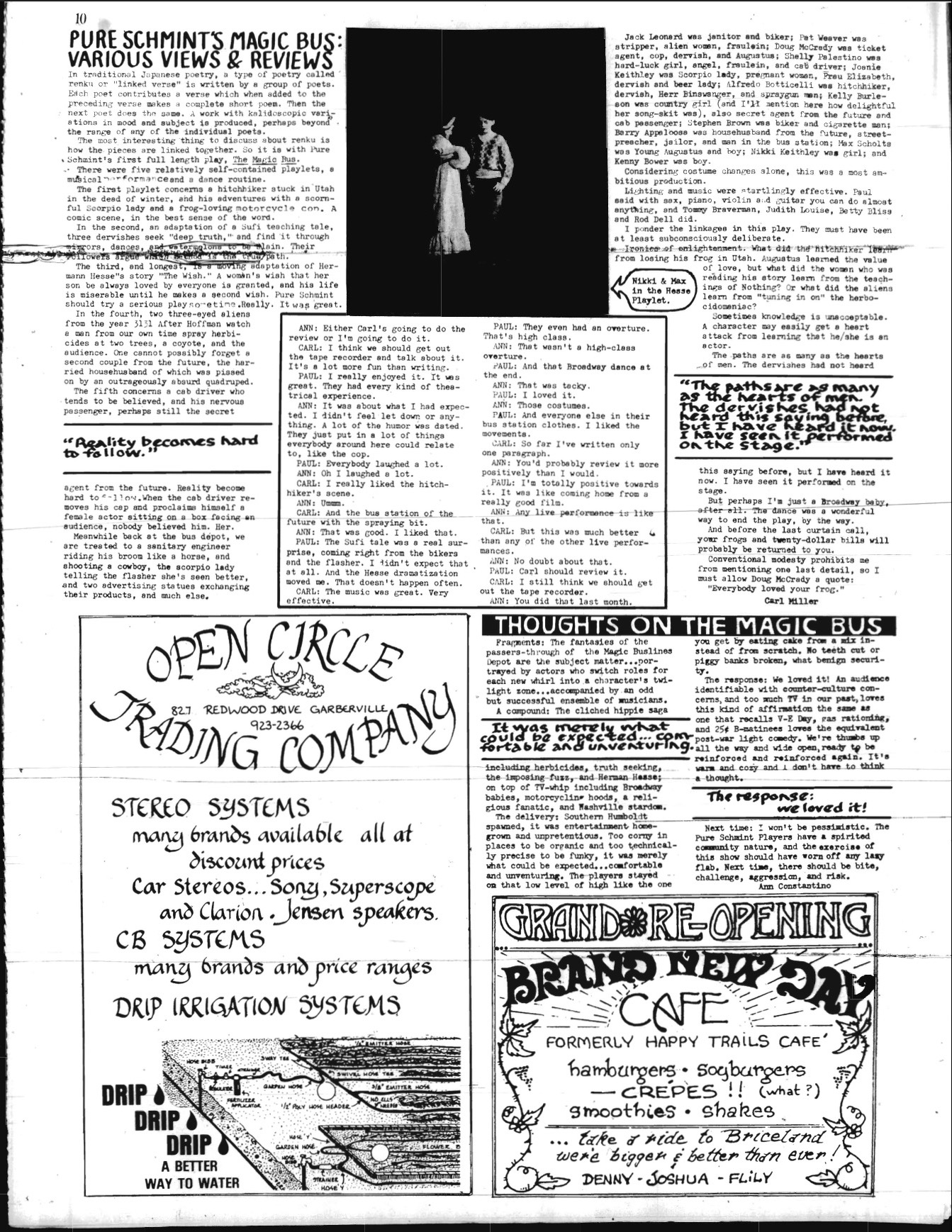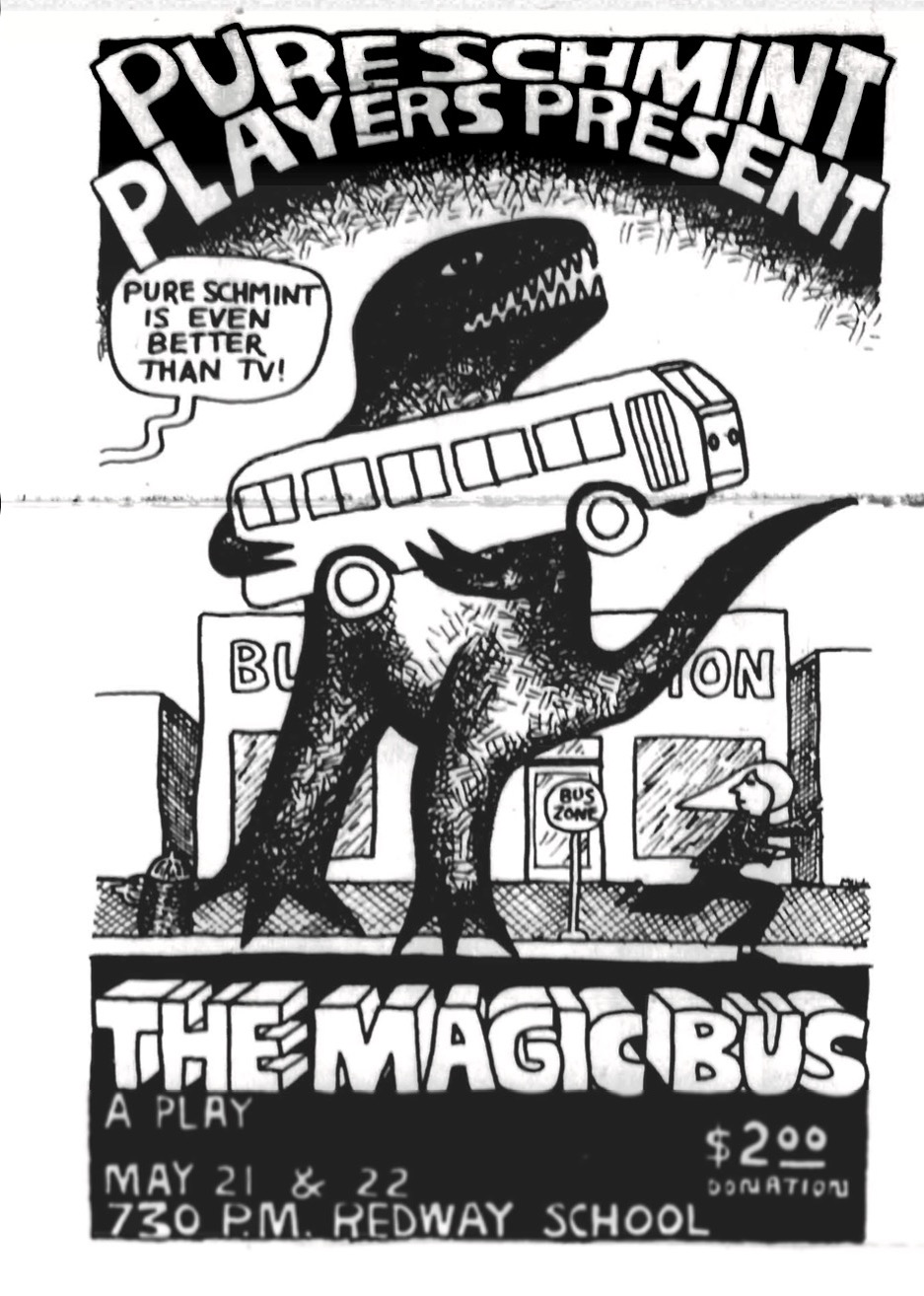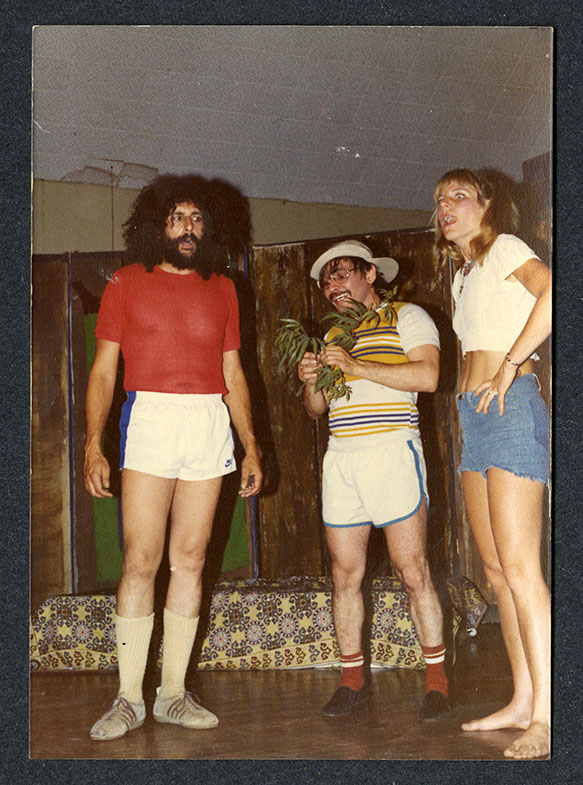Pure Schmint Players
Pure Schmint’ Magic Bus: Various Views & Reviews
(Star Root, June 1977)
“Pure Schmint’ Magic Bus: Various Views & Reviews” (Star Root, June 1977)
By Carl Miller
In traditional Japanese poetry, a type of poetry called renku or “linked verse” is written by a group of poets. Each poet contributes a verse which when added to the preceding verse makes a complete short poem. Then the next poet does the same. A work with kaleidoscopic variations in wood and subject is produced, perhaps beyond the range of any of the individual poets.
The most interesting thing to discuss about renku is how the pieces are linked together. So it is with Pure Schmint’s first full length play, The Magic Bus. There were five relatively self-contained playlets, a musical performance and a dance routine.
The first playlet concerns a hitchhiker stuck in Utah in the dead of winter, and his adventures with a scornful Scorpio lady and a frog-loving motorcycle cop. A comic scene, in the best sense of the word.
In the second, an adaptation of a Sufi teaching tale, three dervishes seek “deep truth,” and find it through mirrors, dances and watermelons to be slain. Their followers argue which method is the true path.
The third, and longest, is a moving adaptation of Hermann Hesse’s story “The Wish.” A woman’s wish that her son be always loved by everyone is granted, and his life is miserable until he makes a second wish. Pure Schmint should try a serious play sometime. Really. It was Great.
In the fourth, two three-eyed aliens from the year 3131 After Hoffman [Albert Hoffman, discoverer of LSD] watch a man from our own time spray herbicides at two trees, a coyote, and the audience. One cannot possibly forget a second couple from the future, the harried househusband of which was pissed on by an outrageously absurd quadruped.
The fifth concerns a cab driver who tends to be believed, and his nervous passenger, perhaps still the secret agent from the future. Reality become hard to follow. When the cab driver removes his cap and proclaims himself a female actor sitting on a box facing an audience, nobody believed him. Her.
Meanwhile back at the bus depot, we are treated to a sanitary engineer riding his broom like a horse, and shooting a cowboy, the scorpio lady telling the flasher she’s seen better, and two advertising statues exchanging their products, and much else.
Jack Leonard was janitor and biker; Pat Weaver was stripper, alien woman, fraulein; Doug McCrady was ticket agent, cop, dervish. and Augustus Shelly Palestino wash hard-luck girl, angel, fraulein, and cab driver; Joanie Keithley [Rose] was Scorpio lady, pregnant woman, Frau Elizabeth, dervish and beer lady; Alfredo Botticelli was hitchhiker, dervish, Herr Binswanger, and spraygun men; Kelly Burlesonwas country girl (and I’ll mention here how delightful her song-skit was), also secret agent from the future and cab passenger; Stephen Brown was biker and cigarette man; Barry Appaloosa was househusband from the future, streetpreacher, jailor, and man in the bus station; Max Scholts was Young Augustus and boy: Nikki Keithley [Rose] was girl; and Kenny Bower was boy.
Considering costume changes alone, this was a most ambitious production.
Lighting and music were startlingly effective. Paul said with sax, piano, violin and guitar you can do almost anything and Tommy Braverman, Judith Louise, Betty Bliss and Rod Dell [later Deal] did.
I ponder the linkages in this play. They must have been at least subconsciously deliberate.
Ironies of enlightenment. What did the hitchhiker learn-from losing his frog in Utah. Augustus learned the value of love, but what did the woman who was reading his story learn from the teachings of Nothing? Or what did the aliens learn from ”tuning it on” the herbocidomaniac?
Sometimes knowledge is unacceptable. A character may easily get a heartattack from learning that he/she is an actor.
The paths are as many as the hearts of men. The dervishes had not heard this saying before, but I have heard it now. I have seen it performed on the stage. But perhaps I’m just a Broadway baby after all. The dance was a wonderful way to end the play, by the way. And before the last curtain call, your frogs and twenty-dollar bills will probably be returned to you. Conventional modesty prohibits me from mentioning one last detail, so I must allow Doug McCrady a quote:
”Everybody loved your frog.”
— Carl Miller

